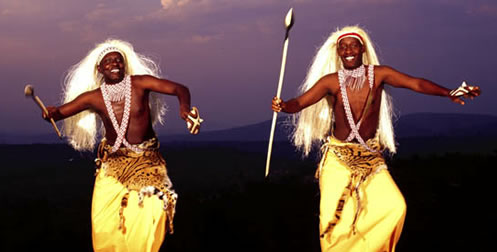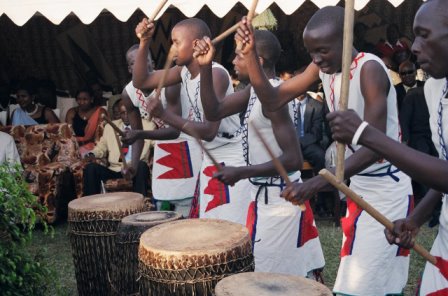Rwanda- Culture Summary

Religion holds importance for much of Rwanda’s culture. Today, about 60 percent of Rwandans are Roman Catholics, another 20-30 percent are Protestants and a few are Muslim. Rwandans often combine native religions with Christianity. They believe that Imaana, their traditional god, is well meaning but distant. They contact Imanna through the spirits of deceased family members.
The people of Rwanda celebrate all
Major Christian holidays such as Christmas and Easter as well as Roman Catholic
holidays. Most of Rwanda’s traditional festivals are no longer national
holidays. However, a harvest ritual called Umuganura is still celebrated in August.
Rwanda does not have distinct rites
of passage outside of traditional life. Birth is the first rite of passage.
After the baby is born the mother and child spend up to 8 days on their own.
Then family and friends bring gifts, the baby is shown for the first time and
its name is announced. Marriage is another rite of passage and they are not
considered adults until they are married with a child. Death is the last rite
of passage. Most Rwandans have a Christian funeral. However, traditional rituals
are often observed and it is common to sacrifice a cow or bull. The Rwandan
family consists of a husband, one or more wives, and the children. The
bridegroom and his father have to pay at least one bride wealth cow to the
bride's father. This payment grants legal status to any children the couple
has.
Groups known as intore perform traditional ritual dances. The dancers wear headdresses made from dried grasses. They carry small shields on their left arms. Rwandans are known for weaving baskets and mats with detailed designs. Similar designs are painted on large cooking pots made by Twa potters. The native instrument called inanga, a harp-like instrument with eight strings, accompanies traditional songs. They also have drum orchestras which normally consist of seven to nine members, who play during weddings and other special occasions.
